Introduction to Volgograd State University
Volgograd State University is one of the largest universities in Volgograd Oblast and a member of the European University Association. It was founded in 1980 and is located in the Russian city of Volgograd. It is a comprehensive university.
Overview
Student size: About 14,000 students and postgraduates study here.
Faculty: There are 1,300 faculty members, most of whom are PhD professors, 30 of whom are academicians of the Russian Academy of Sciences, and some are visiting professors from the United States and Germany.
History and establishment time
Its origin can be traced back to 1972, when the Volgograd State Committee of the Communist Party of the Soviet Union passed a resolution to establish a state university in the city. On June 21, 1974, the Soviet Council of Ministers issued Resolution No. 510 on the establishment of a state university in Volgograd. On October 30 of the same year, the Ministry of Secondary and Higher Education of the Russian Soviet Federative Socialist Republic issued Order No. 469 on the establishment of Volgograd State University. In 1980, Volgograd State University was officially established. At that time, it only offered natural science and humanities departments, 5 training directions for students to choose from, and the first batch of students enrolled was 250.
School Strength
Teaching Achievements: The school has 11 schools and departments, about 50 professional teaching and research offices, 28 master's training directions, 44 bachelor's training directions, 3 expert directions, 42 associate doctoral training directions and 9 doctoral training directions. It has trained 40,000 graduates and provided a large number of professional talents for the society.
Scientific Research Strength: The school's innovative infrastructure includes 21 science and education centers, 11 collective use centers, 6 small innovative enterprises, 77 research and education laboratories, as well as student business incubators, student engineering bureaus, student innovation institutions, etc. The scientific research results have been applied and promoted in many fields.
International Cooperation: Since 1988, it has continuously carried out bilateral educational exchanges and cooperation with foreign universities in the field of science and education. At present, it has cooperated with 50 countries including Germany, Australia, Spain, France, the United States, the United Kingdom, Moldova and China. It has established cooperative relations with many universities, and also opened Russian language preparatory classes for foreigners and Russian language and culture summer camps, providing students with broad international exchange opportunities.
Institutional nature
Public federal state autonomous higher education institution.
Educational philosophy
Focus on cultivating students' comprehensive qualities and practical abilities, and through rich teaching resources and practical opportunities, enable students to master solid professional knowledge and skills, have innovative spirit and the ability to solve practical problems, so as to adapt to the needs of social and economic development.
Key laboratories and disciplines
Key laboratories: The school has 11 shared centers, including 3D simulation laboratories and nanotechnology and materials engineering centers.
Key disciplines: History, International Relations and Social Technology, Mathematics and Information Technology, Priority Technology, Philology and Intercultural Communication, Economics and Finance, Law, Natural Sciences and other disciplines are the school's key development disciplines.
Faculty
The school has 11 departments, including the Department of History and International Relations; the Department of Philosophy and Social Process; the Department of Mathematics; the Department of Physics; the Department of Literature and Journalism; the Department of Language and International Cultural Exchange; the Department of World Economy and Finance; the Department of Management and Regional Economy; the Department of Law; Information Engineering and Electronics; and the Department of Continuing Education.
Ranking
Ranked 241-250 in the 2022 QS Emerging Europe and Central Asia University Rankings.
Expenses
The annual tuition fee for undergraduate and master's programs is about RMB 12,000-15,000, the tuition fee for the preparatory winter semester is 45,500 rubles, and the tuition fee for the summer semester is 45,500 rubles. Dormitory accommodation costs about 1,500 rubles per month.
Campus
Teaching facilities: The school has the largest scientific library in the region, with a collection of 700,000 books, 5 reading rooms, 418 seats, and a rare book department with pre-revolutionary publications and documents from the 1920s and 1930s. In addition, there are 21 science and education centers, 11 sharing centers, 77 science and education laboratories and other advanced teaching facilities.
Living facilities: The school dormitory is a five-minute walk from the main building. One suite can accommodate five people and is divided into two-person and three-person rooms. Each floor is equipped with a public kitchen, a study room, and a room for ironing and drying clothes. The dormitory also has fitness rooms, chess boards, outdoor game rooms, stadiums and other living and entertainment facilities.
-

Peter the Great St.Petersburg Polytechnic University
-
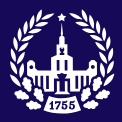
Moscow State University M. V. Lomonosov
-
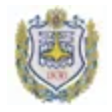
Bauman Moscow State Technical University
-
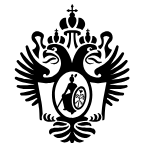
St. Petersburg State University
-
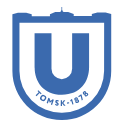
Tomsk State University
-
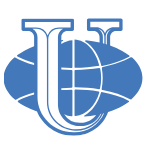
Peoples' Friendship University of Russia
-
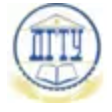
Don State Technical University
-
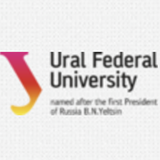
Ural Federal University
-

Moscow Institute of Physics and Technology
-
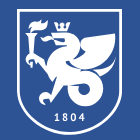
Kazan Federal University
-

Mesoamerican University
-

Istmo University
-

Mariano Galvez University of Guatemala
-

Regional University of Guatemala
-

Galileo University
-

Francisco Marroquín University
-

Rafael Landívar University
-

University of the Valley of Guatemala
-

University of San Carlos of Guatemala
-

Technological Institute of Tlaxcala Plateau
-

Golfo University
-

Technological University of South Sonora
-

Technological University of Huejotzingo
-

Tizimín Institute of Technology
-

Chilpancingo Institute of Technology

